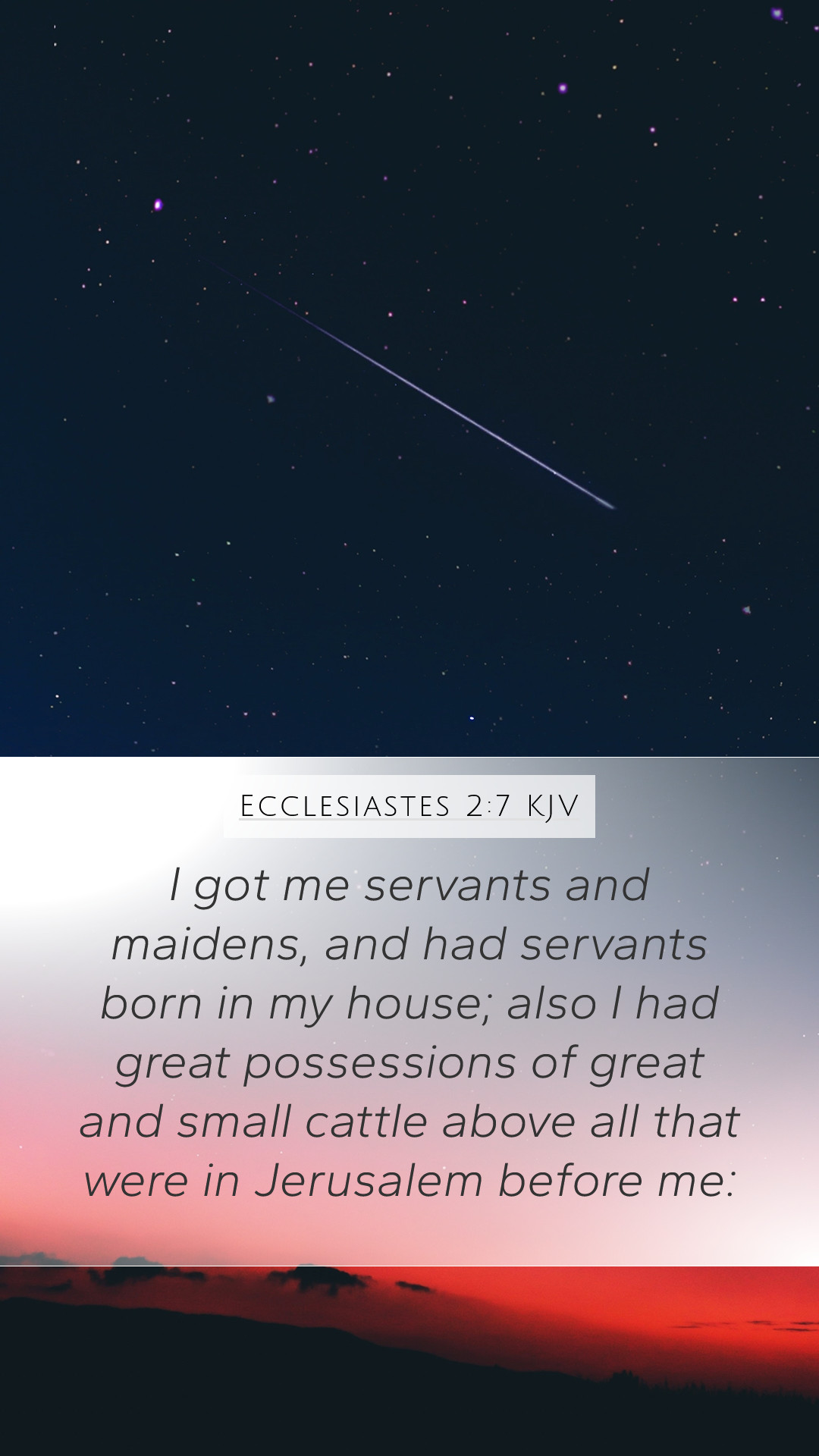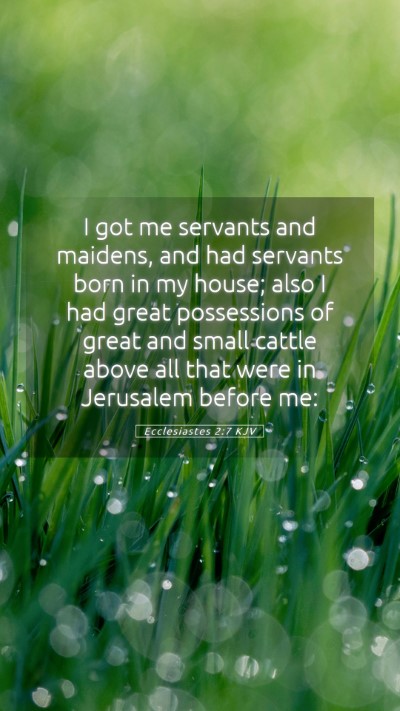Understanding Ecclesiastes 2:7
Ecclesiastes 2:7 states, "I purchased male and female servants, and had servants born in my house; also I had great possessions of herds and flocks, more than all who were in Jerusalem before me."
This verse is part of a larger reflection by the author of Ecclesiastes, traditionally attributed to King Solomon, as he explores the meaning and results of his life pursuits. Below is a synthesis of insights from various public domain commentaries that provide a detailed Bible verse explanation and interpretations.
Bible Verse Meaning
-
Ownership and Possessions:
Matthew Henry elaborates on how Solomon's acquisition of many servants and possessions serves as a reflection of worldly success. However, he questions the lasting significance of these achievements.
-
Wealth and Service:
Adam Clarke points out that Solomon's wealth allowed him to own servants, emphasizing the responsibility that comes with affluence. It also indicates how society structures itself around wealth and power.
-
Comparison of Wealth:
Albert Barnes notes that Solomon's wealth is incomparable to any other in Jerusalem, showcasing the extent of his power and influence. Yet, this raises the question of whether such status brings true fulfillment.
In-Depth Understanding
The acquisition of servants in this verse illustrates not just material gain but also the deeper implications of having authority over others. It provides an opening for Bible study insights into how one's earthly possessions can sometimes obscure the pursuit of spiritual riches.
Solomon's Pursuit of Pleasure
This verse is situated in a context where Solomon reflects on his experiments with pleasure, materialism, and wisdom. His conclusion often leads to the assertion that much of this is vanity, which is a reoccurring theme in Ecclesiastes.
Scriptural Context
To gain a full understanding of Ecclesiastes 2:7, it is essential to connect with other verses that touch on similar themes:
- Proverbs 10:22: "The blessing of the Lord makes rich, and he adds no sorrow with it." - Discussing the true nature of wealth and blessings.
- Ecclesiastes 5:10: "He who loves silver will not be satisfied with silver; nor he who loves abundance, with increase." - Exploring the emptiness of materialism.
- 1 Timothy 6:10: "For the love of money is the root of all kinds of evil..." - Warning against excessive desires for wealth.
Reflection and Application
In applying the lessons of Ecclesiastes 2:7 to daily life, one must ponder the understanding that material possessions do not equate to lasting happiness or fulfillment. Bible study groups can focus on this topic by discussing how modern society often equates success with wealth.
Questions for Bible Study Groups:
- What does this verse teach us about material possessions and their place in our lives?
- How can we ensure that our pursuit of wealth does not overshadow our spiritual lives?
- In what ways can understanding Scripture help us in dealing with desires for possessions?
Conclusion
Ecclesiastes 2:7 prompts readers to reflect on their definitions of success and happiness, urging a deeper contemplation beyond material wealth. The combined wisdom of Matthew Henry, Albert Barnes, and Adam Clarke offers rich Biblical exegesis for anyone engaged in personal or group Bible study lessons.


